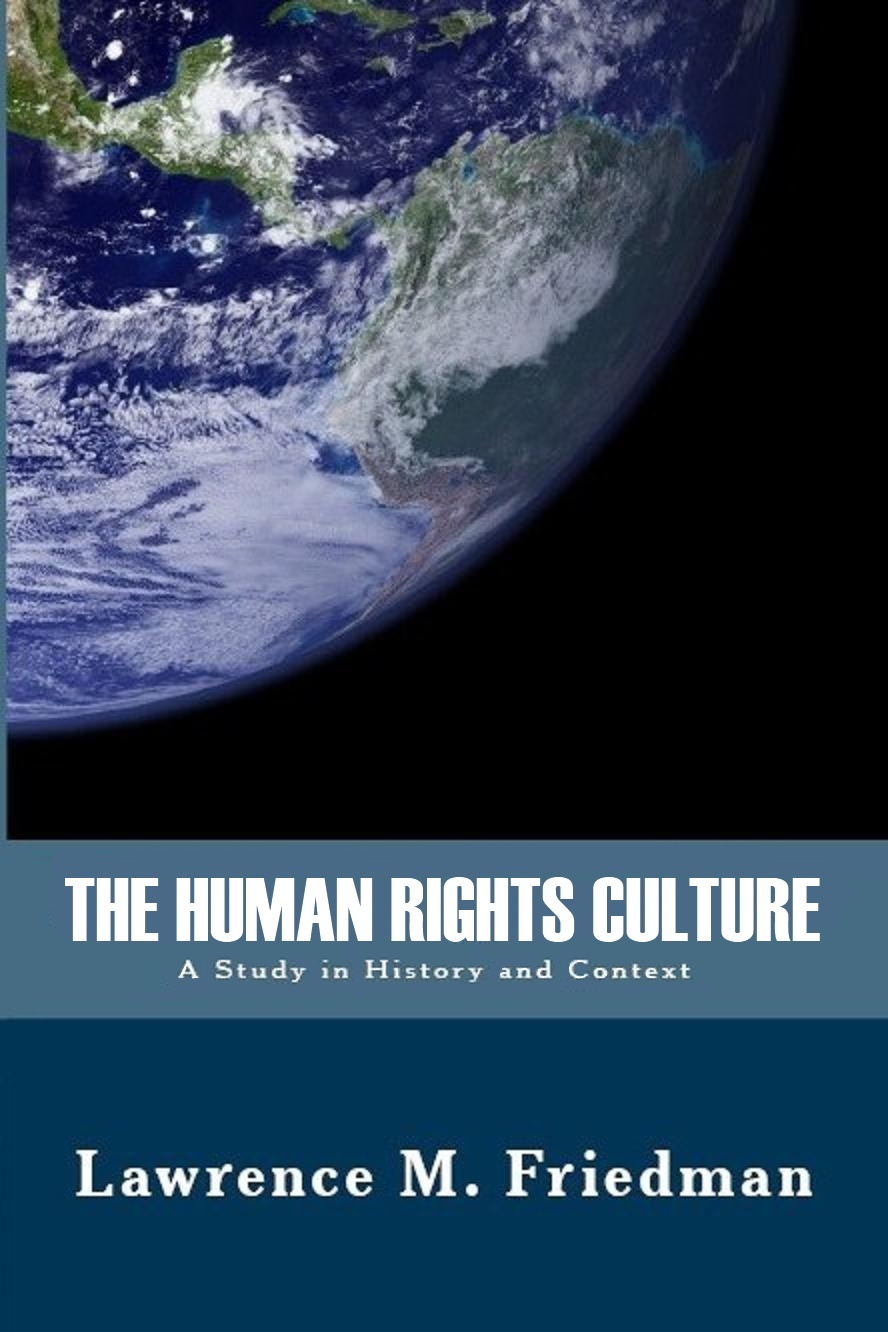Last August we mentioned the publication of
THE HUMAN RIGHTS CULTURE: A STUDY IN HISTORY AND CONTEXT (Quid Pro Books), by
Lawrence M. Friedman.The
Law & Politics Book Review has now posted a
review, by
Zvi H. Triger (The Haim Striks School of Law, College of Management Academic Studies, Rishon LeZion, Israel). Here's Triger on Friedman's intervention into the human rights literature:
Friedman argues that the demography of human rights scholars, who are,
for the most part, mostly philosophy professors and political theorists,
results in scholarship that “has a highly normative flavor” (p.157).
Although a sociological approach to this subject is not new, Friedman
argues that the meta-questions regarding the reasons for the human
rights movements' growing success have largely remained underexplored
and unanswered.
And a bit more, on the book's argument:
In eleven short chapters this concise book reconstructs the social
history of the human rights movement, while not neglecting its
philosophical and legal aspects. Friedman argues that the success of the
human rights movements in the past sixty years or so has been a result
of a gradually growing culture of human rights. This culture is a
product of modernity more than of “Western” values, and therefore it is
not surprising to find it budding in non-“Western” countries as well,
especially among the educated elites of those counties (pp.74-75). He
attributes the rise of the human [*291] rights culture to the rise of
"expressive individualism" in both developed countries and among the
elites in some non-“Western” countries (pp.48-49).
Read on
here.
